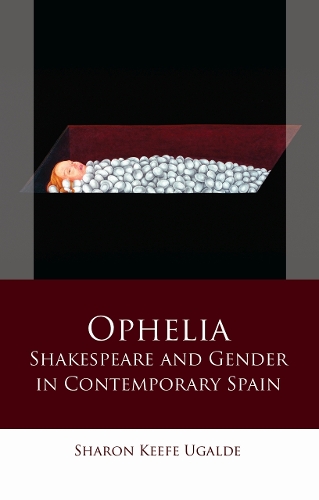
Ophelia: Shakespeare and Gender in Contemporary Spain
(Paperback)
Publishing Details
Ophelia: Shakespeare and Gender in Contemporary Spain
By (Author) Sharon Keefe Ugalde
University of Wales Press
University of Wales Press
25th August 2020
United Kingdom
Classifications
Professional and Scholarly
Non Fiction
Literary studies: c 1600 to c 1800
The visual, decorative or fine arts: treatments and subjects
Gender studies, gender groups
822.33
Physical Properties
Paperback
272
Width 138mm, Height 216mm
Description
It is astonishing how deeply the figure of Ophelia has woven itself into the fabric of Spanish literature and the visual arts, from her first appearance in the eighteenth century (translations of Hamlet), through depictions in seminal authors such as Espronceda, Bcquer, and Lorca, to turn-of-the millennium figurations. This provocative, gendered figure has become what male and female authors and artists need her to be. Is she invisible A victim Mad Controlled by the masculine gaze An agent of her own identity Ugaldes well-documented study addresses these questions in the context of Iberia. Poets, novelists, and dramatists, penning works in Spanish, Catalan, and Galician, and painters and art photographers bring Shakespeare's heroine to life in new guises. She performs as an authoritative female author, a sexually fulfilled woman, in a male body, as a cyborg, a lesbian, and as a historical marker of past oppression. New looks both reflect and authorize the gender diversity that has gained legitimacy in Spanish society since the political Transition.
Reviews
A masterful and comprehensive study of the myriad manifestations of Ophelia in post-Franco Spain. The book includes all the literary genrespoetry, novel, dramaand the visual arts with stunning illustrations. Shakespeares tragic female character has taken on a wide variety of meanings in Spains recent culture, displaying an amazing adaptability to new circumstances.
-- Roberta Johnson, Professor Emerita, University of Kansas
The author offers a stunning, double-stranded approach to Spanish cultural production in twentieth- and twenty-first-century literature and art. The Shakespearian figure of Ophelia serves as the grounding from which the evolutionary genetics of gender and Spanish cultural history is made visible. This reference to DNA is deliberate: the imprint of Ophelia on contemporary Spanish art and culture is indelible.
-- Margaret H. Persin, Professor Emerita, Rutgers University
Author Bio
Sharon Keefe Ugalde is Distinguished Professor of Spanish Literature and Culture at Texas State University, San Marcos. She is the author of numerous critical works on Spanish poetry, including En voz alta. Las poetas de las generaciones de los 50 y los 70 (2007), and Conversaciones y poemas. La nueva poesia femenina espanola en castellano (1991).
